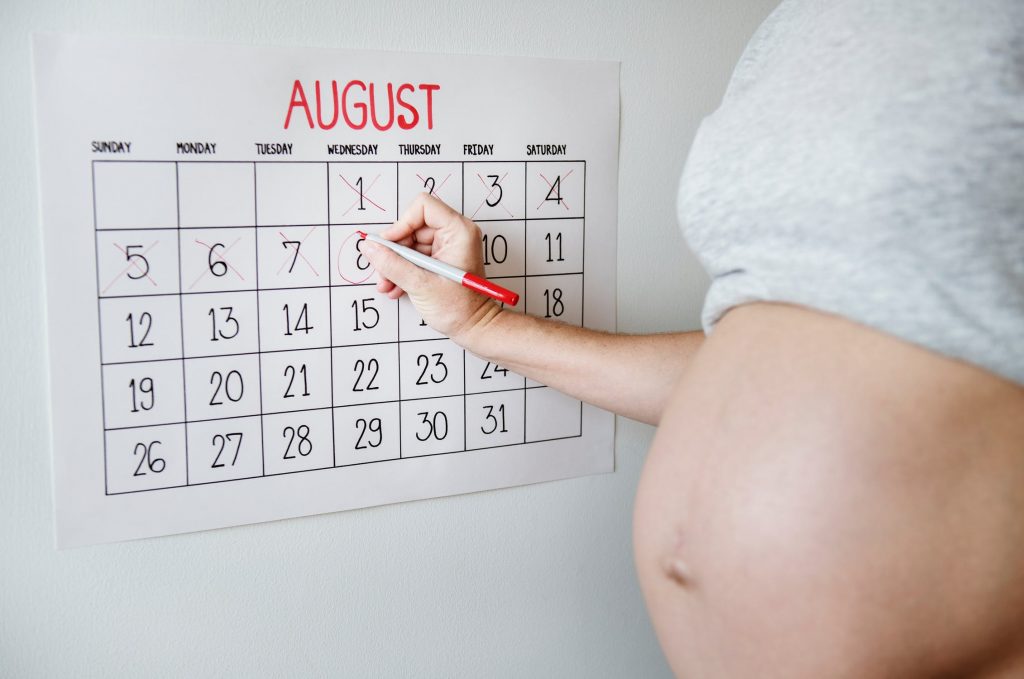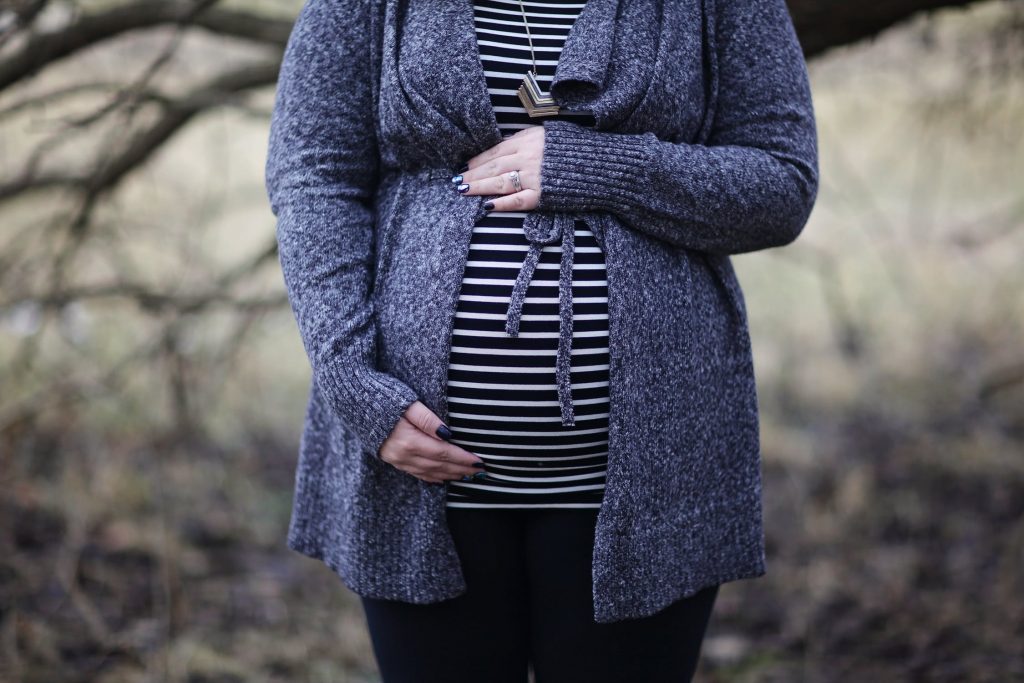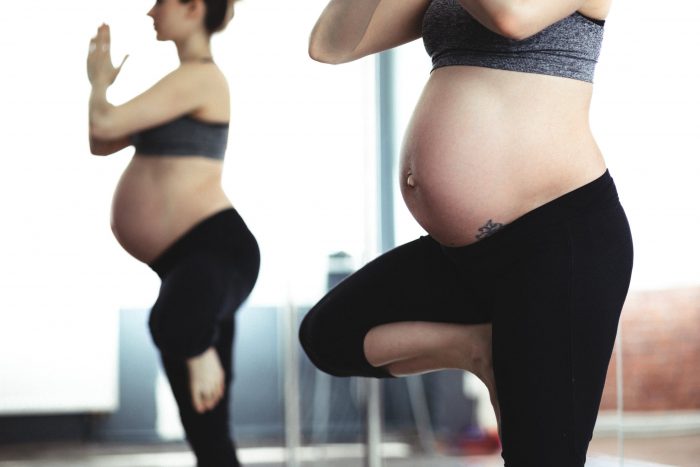“Eat up – remember you’re eating for two now!”
“Be careful, it’s difficult to lose weight after you give birth.”
“Don’t worry, once you start breastfeeding, the weight will drop off you”
Pregnant women are often bombarded with conflicting advice about what they should eat and the optimal weight they should maintain for their baby’s and their own health. In our first blog post, Norwest Obstetrics & Gynaecology will clarify the current scientific research on this important topic.
Trust your gut, but steer yourself towards healthier foods

Many women simply trust their appetite when it comes to eating during pregnancy. They don’t eat a specially designed diet and will eat what tastes good for them or what feels right at the time. However if you find yourself eating foods high in fat, salt and sugar, it may be time to consider replacing these foods with healthier options like fresh fruits and vegetables. Doing 30 minutes of moderate exercise 3-4 times per week (for example swimming, yoga or walking), can also help to keep weight down.
The Royal Australian and New Zealand College of Obstetricians and Gynaecologists (RANZCOG) recent guideline provides the following advice regarding weight gain for women during pregnancy
- Underweight (with a pre-pregnancy BMI of <18.5) should aim for 12.5 – 18 kg.
- Healthy weight (with a pre-pregnancy BMI of 18.5 – 24.9) should aim for 11.5 – 16 kg.
- Overweight (with a pre-pregnancy BMI of 25 – 29.9) should aim for 6.8 – 11.3 kg.
- Obese (with a pre-pregnancy BMI of >30) should aim for 5 – 9.1 kg.

However, your BMI is not the only factor that influences health outcomes for you and your baby. At Norwest Obstetrics & Gynaecology we can help you to gain a complete picture of your baby’s health. Our highly experienced Obstetricians Drs Matthew Wilson and Bassem Gerges provide exceptional medical care. Every woman’s body, health and lifestyle is different. We provide compassionate and supportive medical care that is tailored to your personal journey towards motherhood.
Pregnancy weight gain and distribution
Your body will change rapidly during pregnancy to ensure that your unborn child gets the nutrients and water they need. A lot of these changes begin at conception and happen behind the scenes, then become noticeable as time goes on. You will gain a lot more weight in the final few months of pregnancy, compared to first few months. The additional weight isn’t only the growing baby, it’s your biological support system that is sustaining the baby’s growth. This includes the baby’s circulation, the placenta and amniotic fluid.
For example, if at full term, your baby weighs approximately 3 – 3.5 kg (7-8 lbs). The rest of your pregnancy weight gain will be made up of the following:
- Larger breasts: 0.5–1.4 kg (1– 3 lb)
- Larger uterus: 0.9 kg (2 lb)
- Placenta: 0.7 kg (1– 1.5 lb)
- Amniotic fluid: 0.9 kg (2 lb)
- Increased blood volume: 4 –1.8 kg (3 – 4 lb)
- Increased fluid volume: 0.9–1.4 kg (2 – 3 pounds)
- Energy stored as fat: 2.7–3.6 kg (6 – 8 lb)
If you began your pregnancy at a healthy or normal BMI, then you only need to gain another 0.5-2kg of weight during the first trimester. This is good news if you’re struggling to keep food down because of morning sickness.

Steady weight gain is more important during the second and third trimesters. If you started out at a healthy weight or you are underweight then you should aim to gain at least half a kilo per week until delivery. Simply by adding a sandwich and some fruit or vegetables to your diet each day should help you to achieve this.
Overweight or obese women should aim to gain about 0.2kg per week in the second and third trimesters.
Healthy long-term habits lead to healthier babies and easier pregnancies
For many years, it has been well-known that smoking and high alcohol consumption during pregnancy can lead to low birthweight, pre-term birth, as well as higher rates of diabetes and heart disease later in life.
Research published in The Lancet found that a woman’s health in the years before she becomes pregnant has an impact her own health during the pregnancy and the baby’s development.

One Australian longitudinal study from 2015 demonstrated that women with a healthy and balanced diet in the three years prior to pregnancy, were less likely to get high blood pressure, gestational diabetes and pre-eclampsia during pregnancy. A balanced diet includes a high intake of fruit, vegetables, legumes, nuts, fish and a low intake of red or processed meats.
Physical activity has a protective role for women and their babies. Higher levels of physical activity before conception leads to a lower risk of pre-eclampsia and gestational diabetes.
Rapid pregnancy weight gain is a sign of problems
Pre-eclampsia
If a woman gains more than 0.5 kg of weight each week, then additional tests and examinations may be needed. Extreme weight gain of 1 kg per week can indicate serious health problems, such as pre-eclampsia. The main symptom of this pregnancy-related condition is high blood pressure. This is sometimes accompanied by nausea, headaches and dizziness too. Pre-eclampsia can be life-threatening to both mother and child. Therefore it’s essential that you tell you obstetrician as soon as possible.
Gestational diabetes
Rapid weight gain during pregnancy also increases the risk of women developing gestational diabetes. This can also be a sign that a woman already has gestational diabetes. This is a type of diabetes where blood sugar levels increase in women who didn’t have diabetes prior to becoming pregnant.
Gestational diabetes also increases the risk of pre-eclampsia, and can result in the unborn baby putting on a lot of weight. This can delay the birth and make it more difficult to give birth naturally.
The social pressure of maintaining the ‘right’ pregnancy weight

The age of social media ensures that pregnant women are constantly bombarded by (often digitally enhanced) images of celebrities with their perfect post-baby physiques.
This can be damaging to your self-image and mean that you can’t really enjoy the experience of being pregnant and having a large belly. Weight gain is an unavoidable part of being pregnant, but your changing body in all of its wondrous natural capabilities should be celebrated, not become a source of shame.
Help is at hand: Norwest ObGyn
Every woman’s body, health and lifestyle is different. It’s therefore critical that you get the best medical advice that’s tailored for yourself and your baby. Norwest Obstetrics & Gynaecology are accredited with the Royal Australian and New Zealand College Of Obstetricians and Gynaecologists (RANZCOG). We have received excellent feedback from our patients on our service delivery.
Patient care is our first priority and we give our women the time and attention needed in their scheduled appointments with their chosen doctor. Book an appointment with us today on 02 8883 5143.
References
RANZCOG Management of Obesity in Pregnancy Guideline
Diabetologia (2015) Pre-pregnancy dietary patterns and risk of gestational diabetes mellitus: results from an Australian population-based prospective cohort study (2015) Danielle A. J et. al.
Institute for Quality and Efficiency in Health Care (IQWiG) (2006) Pregnancy and birth: Weight gain in pregnancy
The Lancet (2018) Preconception Health
The Mayo Clinic (2017) Pregnancy weight gain: what’s healthy?
University of Technology, Sydney (2011) Why it’s a bad idea to eat for two during pregnancy. Dr Caroline Homer. University of Technology, Sydney, The Conversation.


